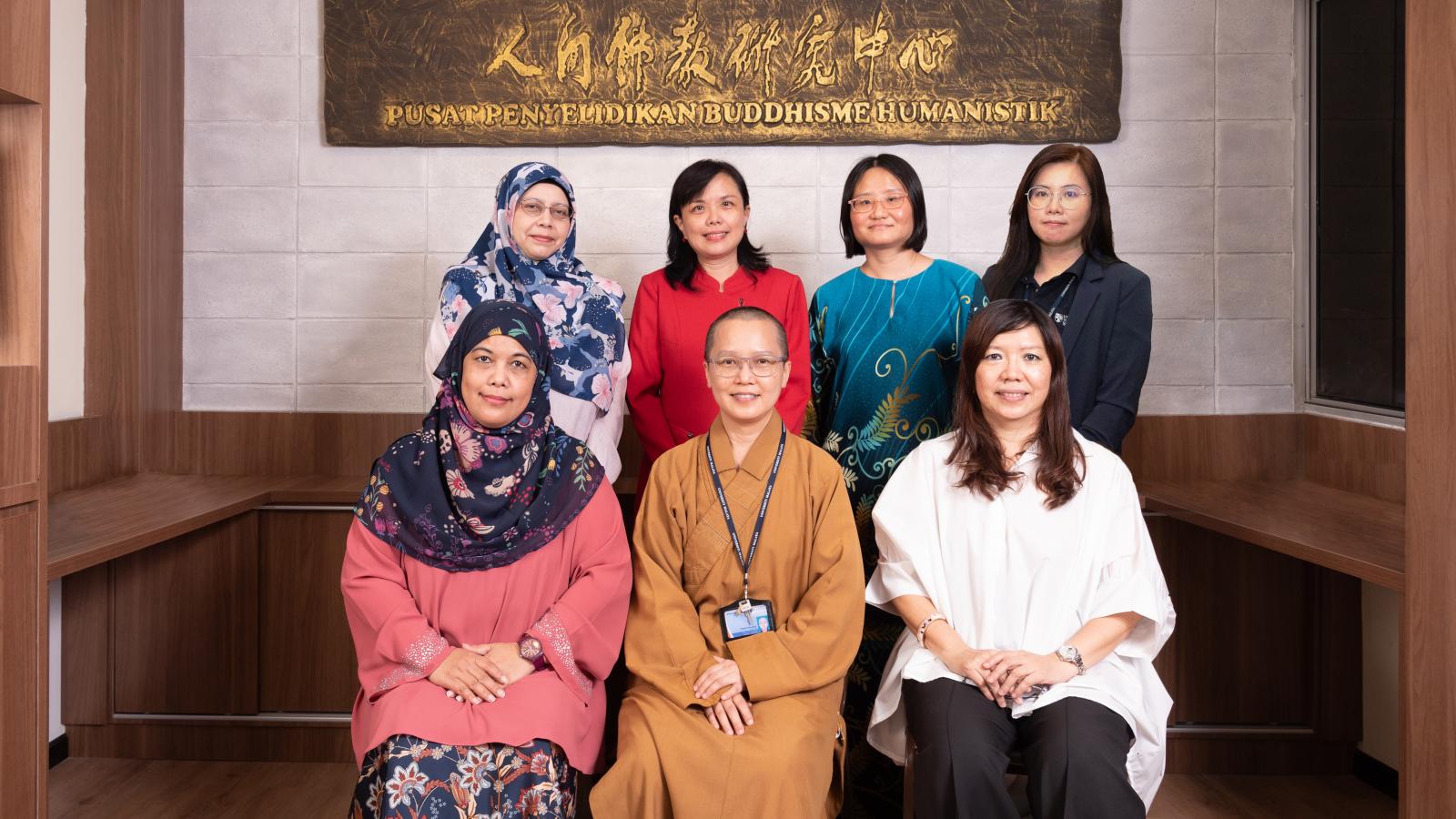Project Title:
Development of Mobile Application to Support Humanistic Buddhism Learning among Young Adults in Malaysia
Reserach Team:

Introduction
Adoption and application of mobile devices and social media encourage the mobile learning opportunities among young adults in accessing learning contents as well as interaction with peers and experts. In Malaysia, findings revealed that young adults have generally accepted social media as an alternative learning environment (Ng, Thang & Noor, 2018). The use of mobile devices (namely cell phones and tablets) as a tool to support the acquisition of knowledge is referred to as ‘mobile learning’. The potential of mobile learning is evidenced by the fact the United Nations Educational, Scientific and Cultural Organization (UNESCO) has been organizing Mobile Learning Week for the past eight years to gather policy makers and technology organizations with the aim to make learning accessible to young generation (UNESCO, 2021).
The Buddha’s life as a human being can serve as an inspiration and as a model for spiritual practice in our own lives. Therefore, the teachings of the Buddha are called “Humanistic Buddhism” to emphasize that they can be integrated into all aspects of our daily lives. Humanistic Buddhism has six fundamental characteristics: humanity, emphasis on daily life, altruism, joyfulness, timeliness and universality. Whether one practices Theravada, Mahayana, or Esoteric Buddhism, Buddhism should maintain its emphasis on humanity so it can remain relevant as times change. Because Humanistic Buddhism regards the trends of the current age rather than merely following traditions blindly, it is a beacon for the future.
The Buddha’s Light International Association (BLIA) is a monastic and lay organization with the purpose of promoting Humanistic Buddhism, established in 1997. BLIA was granted the NGO association status by the United Nations Economic and Social Council in 2003, signifying the recognition of BLIA contributions to society’s peace and harmony since establishment. In Malaysia, the Buddha’s Light Young Adult Division (BLIA YAD) is a registered non-profit organization has approximately 2,000 numbers of members across Malaysia (age 18-35 years). These young adults grow up in the similar digital environment as others in Malaysia. Mobile learning applications may encourage the young adults to learn Humanistic Buddhism anywhere and anytime.
Problem Statement
The development of mobile learning does not only involve using mobile devices to transmit information to learners, but practitioners should also consider the perspective of learner’s behaviour, attitude and acceptance towards mobile learning (Samoekan, 2021). Despite numerous literatures have supported the benefits of using mobile learning for academic purpose, there are scarce knowledge in understanding how mobile devices enables learning beyond academic content, such as Buddhism teaching. Researchers in Thailand, Rattanachai, Luebangyai & Kularbphettong (2015) have explored potential of using mobile applications in learning Buddhism. They designed and developed a Thai Buddhist lifestyle mobile application to share information about Buddhist ceremony in Thailand. However, this mobile application focus more on provide education in the rituals and practices two Thai Buddhist dominations, there is a lack of proper education content related to Buddhism.
There are several Buddhism related mobile applications available in the Android Play Store. Some of the mobile applications focus on lifestyle practice for health and fitness such as meditation, breathing, chanting and sharing of Buddhism quotes. However, the applications may include inappropriate quotes such as political messages, non-Buddhism quotes. On the other hand, there are some applications that provide basic Buddhism knowledge and stories. Based on the user reviews, some of the Buddhism content is inaccurate, did not specify the source of the knowledge and may mix up with intrusive knowledge. Besides, these applications also include commercial advertisements such as animated ads and sometimes include inappropriate ads. There is a need for more structured and advanced Buddhism teaching content for mobile learning applications. Additionally, none of the mobile applications in the market provides mobile learning to support the learning of Humanistic Buddhism, especially for young adults.
Last Update: 23/02/2023